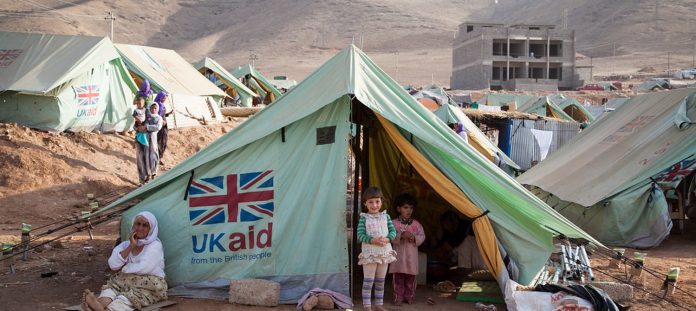
The UK government has outlined details of its plan to slash foreign aid by 40%, prompting strong criticism from aid agencies and MPs who warn the cuts will disproportionately impact the world’s most vulnerable — particularly women and children in Africa.
The reduction, announced in February, will lower aid spending from 0.5% of gross national income to 0.3%. The move comes as the government seeks to boost defence spending to 2.5% of GDP, partly under pressure from the United States.
A Foreign Office impact assessment confirms that the most significant cuts this year will affect Africa, especially in areas such as girls’ education, women’s health, and water sanitation. The report warns that the cuts may increase the risk of disease, malnutrition, and death.
Aid groups and international development organisations have condemned the decision. UNICEF UK called the cuts “deeply short-sighted,” warning of a “devastating and unequal impact” on women and children. The agency urged the government to allocate at least 25% of aid spending to child-focused programmes.
Bond, a UK network for international aid organisations, accused the government of “deprioritising” essential sectors, including gender equality, education, and crisis response in conflict-hit countries like South Sudan, Ethiopia, Somalia, and the Occupied Palestinian Territories.
“The world’s most marginalised communities — especially those in conflict and women and girls — will pay the highest price for these political choices,” said Gideon Rabinowitz, Bond’s policy director.
Street Child, a UK-founded charity, said the cuts would force them to halt vital education programmes in countries such as Sierra Leone, South Sudan, and DR Congo.
“So children who used to go to school will not go to school,” said CEO Tom Dannatt. “More children will be found roaming the streets or working fields instead of learning to build brighter futures.”
Despite the widespread criticism, the government has defended its approach. Baroness Chapman, Minister for Development, said:
“Every pound must work harder for UK taxpayers and the people we help. These figures show how we are delivering more targeted, efficient support.”















